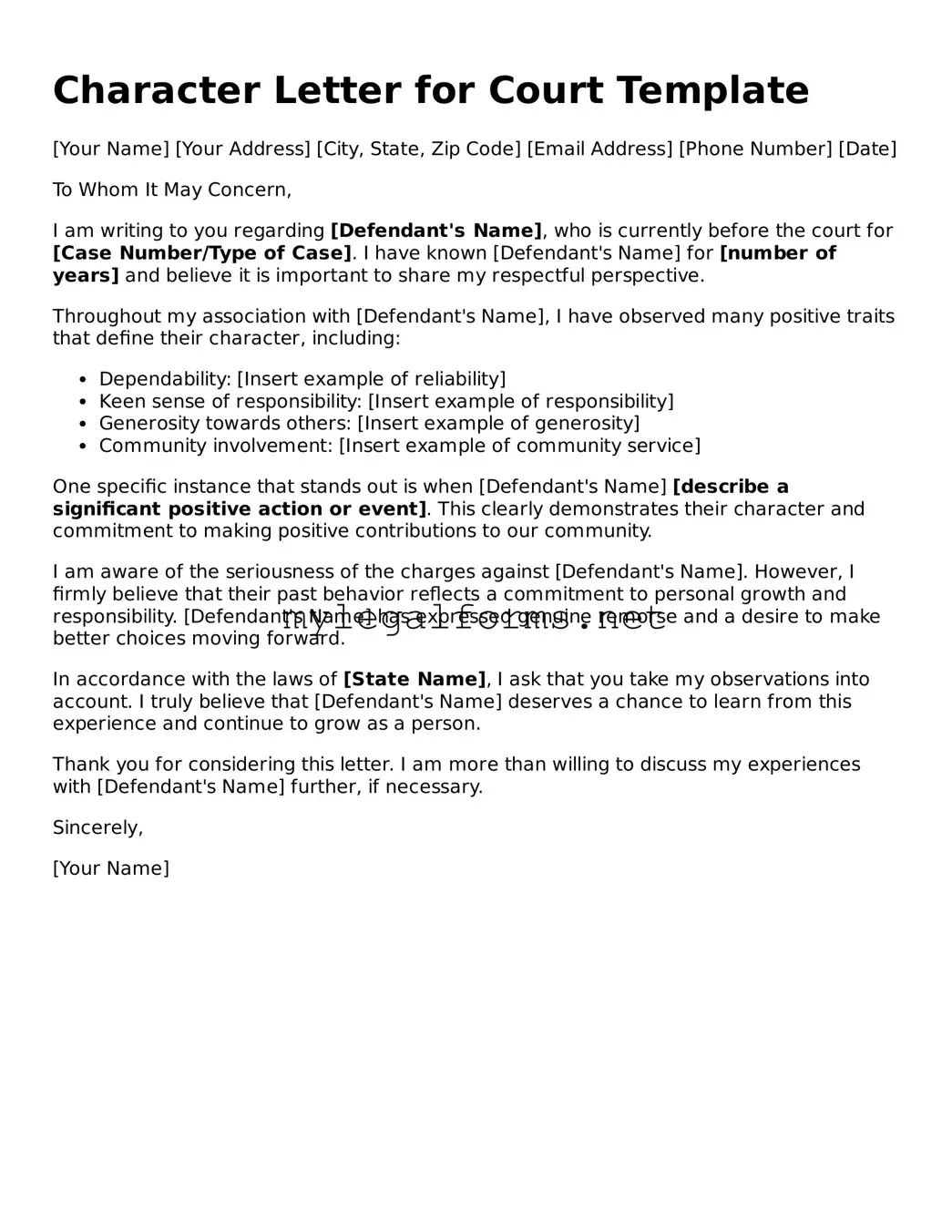Attorney-Approved Character Letter for Court Form
The Character Letter for Court is a document that provides a personal account of an individual's character, often used to support someone during legal proceedings. This letter typically includes observations and experiences that highlight the person's positive traits and contributions to the community. By offering insights from friends, family, or colleagues, it aims to present a more comprehensive view of the individual in question.
Launch Character Letter for Court Editor

Attorney-Approved Character Letter for Court Form
Launch Character Letter for Court Editor

Launch Character Letter for Court Editor
or
⇓ PDF Form
Complete the form at your pace — fast
Finish your Character Letter for Court online and download the final version.